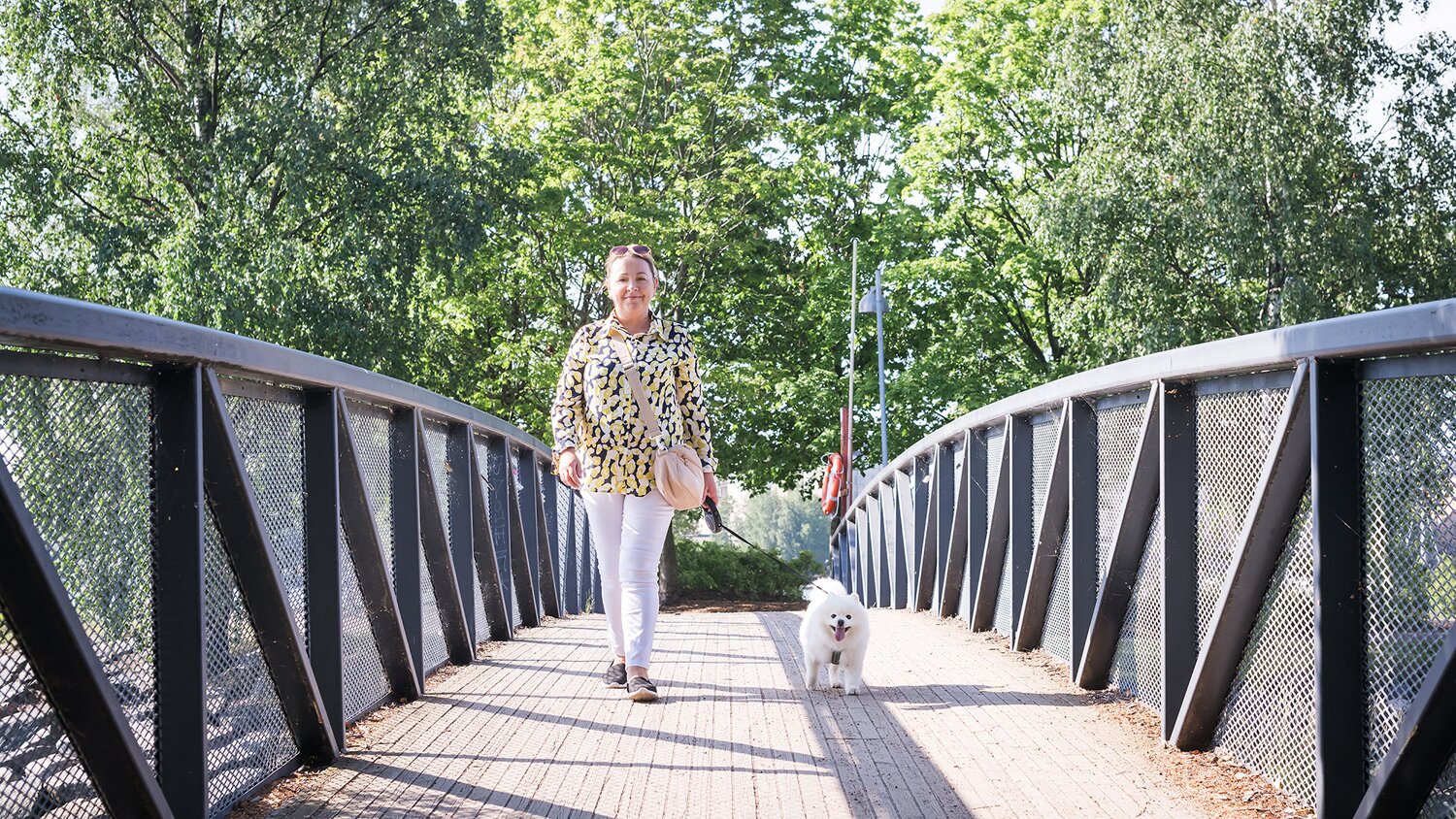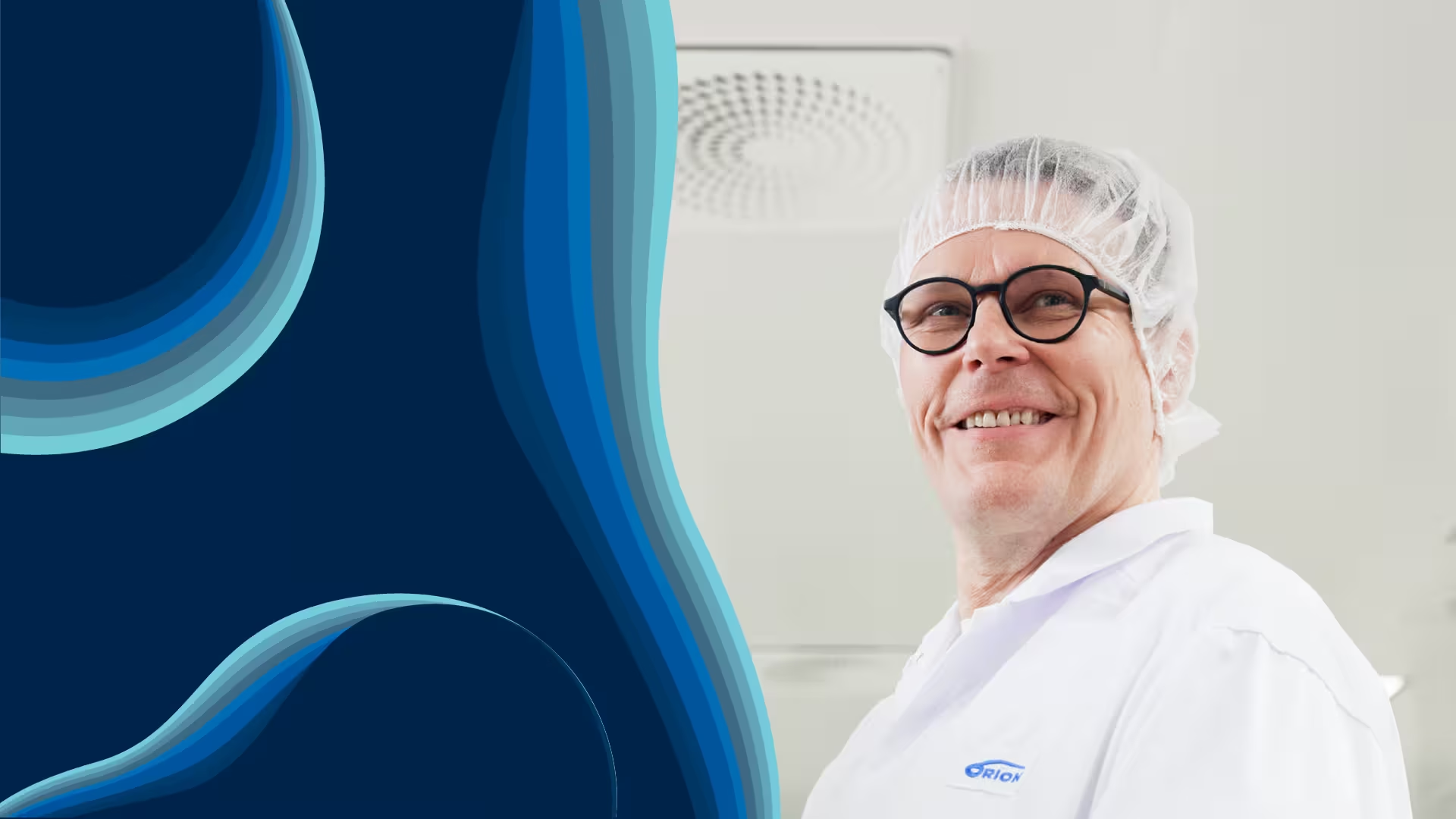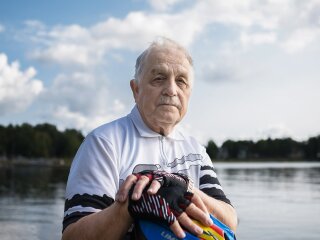Lessons – “It is important to take your health seriously”
I was 41 years old when I was diagnosed with metastatic breast cancer. The tumour was close to my heart and had spread extensively into the bone. The diagnosis was a huge shock, and it has made me a completely different person. Before my diagnosis, I worked in three shifts as an orderly. I worked hard and took on extra jobs. Therefore, I wasn’t always able to spend time with my children. Nowadays, I want to spend more time with my loved ones. I want to enjoy every single day, even if it is hard sometimes.
If you have a busy life, you may not necessarily think about your health very much. I was recently chatting to a friend about whether it was necessary to attend mammograms. I said that it doesn’t take much effort to attend, but attending can give you much more. It is important to take your health seriously. Once you lose it, no amount of money can bring it back.
Difficult moments – “I lost quite a few friends”
I suffer from bone pain sometimes. I had lymph nodes removed from the left side of my body, and as a result fluid collects in my left arm and it can sometimes swell a lot. I have gained almost 20 kilos of weight because of my medication. This makes it harder for me to move, and when I look in the mirror, I don't recognise my body anymore.
I lost quite a few friends after my diagnosis. Maybe they didn't know how to be there for me. My relationship also ended. I have heard similar experiences from other cancer patients. On top of everything else, people diagnosed with an illness may fear being left alone with their illness. For example, chemotherapy made me so ill that I wasn't able to get out of bed. I had to ask my children, who were just under twenty at the time, for help with everyday things.
At the moment, my situation is stable. I'm on continuous medication and have tests every six months. Last autumn they found an enlarged lymph node, which is now being monitored. It feels scary to just monitor the situation, but if the doctor says the situation is not dangerous, then I just have to try and trust them.
After my diagnosis, I was able to see a psychologist five times. I would have wanted to receive more help of this kind. However, I’ve found strength in self-help books, and I try to vent my bad thoughts through writing. I have to get the bad thoughts out somehow.
Hope – “Working with children allows me to forget my worries and focus on them”
After my diagnosis, I took my medical notes to an experienced oncologist in Estonia. He urged me to accept every treatment offered to me. According to the oncologist, I had a maximum of five years to live. But it is now seven years since my diagnosis. I am very grateful to have been able to live this long.
I have been retired part-time for several years now, as I was unable to continue my physical shift work as an orderly. Nowadays, I work with children sometimes. When I’m in this role, I have to forget my own worries and focus on the children. The same is true when I volunteer for shifts on a peer support hotline. Peer support is important for others who have received a diagnosis, but it also helps me. I have to put my own worries aside, even if it is for just a moment.
My dog Milo, who I got a year after my diagnosis, also makes me happy and brings me joy. I thought that if I had a dog, I would be forced to go out for a walk every day, even for just a short one. Nowadays, I spend a lot of time outdoors. I really enjoy it, and hardly ever did it before.”

Before being diagnosed with breast cancer, Kerly Hiltunen worked a lot and was therefore unable to spend much time with her loved ones. Nowadays, she enjoys spending more time with her children, grandchildren and dog.
Support – “Being able to give others faith in the future gives me a warm feeling”
I now spend much more time with my loved ones than I used to. I see my children regularly, and I also have a four-year-old grandchild with whom I spend time. I don't really talk about my cancer with my children.
At first, I didn't want any peer support. I was afraid that if I participated in peer activities, people would ask me personal questions or that I would have to talk openly about my situation right away.
My sister, who lives in the USA, persuaded me to try it. She said that taking part in peer activities would help me more than sitting at home alone. I went to my first appointment two years after my diagnosis. The people were very welcoming, and I felt no need to speak right away.
I have taken great comfort in knowing that I am not alone in my experiences and symptoms. I have also trained as a peer support worker for a patient organisation. I sometimes answer calls from home and chat to other people who want to talk about their metastatic breast cancer. Being a peer support worker doesn't require much from me, but being able to give other people faith in the future gives me a warm feeling.
I hope that friends and loved ones could find the courage to be there for people who are seriously ill. After a diagnosis, you may be in shock and scared and may not necessarily want to ask for help from or burden others, because everyone has their own lives and things to do. For someone who is ill, even just calling and giving them something else to think about – or helping out with the groceries, for example – can be a big thing.
Breast cancer
-
What is breast cancer? Breast cancer is the most common form of cancer in women. In Finland, more than 5,000 women are diagnosed with it every year. The risk increases with age: 60 per cent of those affected are over 60 years old.
-
Symptoms. The most common symptom is a lump in the breast, although the majority of breast lumps are benign. Cancer is most often painless, but it can also cause pain or tingling in the breast. If you experience clear or bloody fluid leaking from the nipple, puckering of the skin or a retracted nipple, or if you have a persistent rash, swelling or redness around the nipple or on the breast, you should make an appointment to see a doctor.
-
Treatment. Surgery is the main form of treatment for breast cancer. After that, treatment may be followed by adjuvant therapies, such as cytostatic therapy, radiotherapy, hormone therapy or a combination of these. Cancer drugs can be given before surgery, in which case this is called pre-adjuvant or neoadjuvant therapy. Instead of a mastectomy, in which the entire breast is removed, a lumpectomy may be possible, where the tumour and some of the surrounding tissue is removed. If the cancer has spread to the lymph nodes, they can be treated with radiotherapy or removed.









